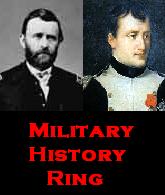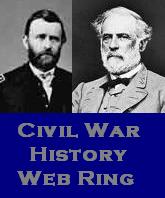Interview with David H. Jones
Posted by Daniel Sauerwein on November 22, 2008
After writing my review of Two Brothers, One North, One South, I found that I had some questions about the book that only the author could answer, so I contacted David H. Jones and put forth the following questions, which he was gracious enough to answer. I hope you enjoy and that he answers some of the questions you may have had about his book.
1. How did you choose the topic of your story and why did you choose to write a novel instead of a non-fiction historical work?
A. I found the story of the Prentiss brothers while researching the regiments of my Civil War ancestors. My great great grandfather, James Touchstone, served as an officer in the 6th Maryland Infantry with Clifton Prentiss. I discovered that Clifton had a younger brother who served in the Confederate 1st and 2nd Maryland Battalions and that Walt Whitman had written about William Prentiss in “Memoranda During The War.” After three years of collecting historical data, it was apparent to me that the book could be written as either as a non-fiction or fiction.
In my view, the circumstance of “brother fighting brother” is the quintessential story of the American Civil War and, as such, could achieve greater readership as a novel rather than as a non-fiction. At the same time, I was aware that there is a downside to historical fiction. All too often these novels are full of inaccuracies and the story is one that could have happened at anytime; the author simply drops it into a certain time period and doesn’t care enough to make the details authentic. Thus, many Civil War buffs are prejudiced against any book that is not a non-fiction.
2. Your book is considered historical fiction. Aside from battles and locations, what percentage of the characters are fictional and how much of the story is based around actual events in the life of the real persons? How did you determine how much of your story elements would be fictitious?
A. There are only three fictitious characters in “Two Brothers.” Elijah and Alma Carter are created characters, as is Laura Watson, although there is some evidence of a stepsister in the Prentiss family. Otherwise, the scenes within the book are closely based on actual events in the lives of historical persons. Regarding Elijah, the 7th USCT was an actual regiment that was raised in Baltimore in late 1863 and its exploits were real.
3. I could not help but think about elements of the miniseries North and South as I read this story. What literary works and/or television and films on the war influenced you and shaped the writing of this work?
A. The miniseries “North and South” is fairly true to the period, as are novels by Michael Shaara, Jeff Shaara, Howard Bahr, and others. The work of David McCullough proves that accurate history can be brought-to-life and that inspired me to shape a novel closely based on real people and events; one that would hopefully both entertain and educate.
4. One of my minor criticisms of your book was the heavy focus on William’s service in the war. Could you explain why you did not devote part of the book to presenting Clifton’s service in the Union army?
A. There’s a good reason for this imbalance. The Confederate 1st Maryland Battalion was formed in time to fight at First Manassas (First Bull Run) in July of 1861. Conversely, the 6th Maryland Infantry was not mustered into service until late August of 1862 and saw little field service until June of 1863. Thus, there was more “story material” about William than there was about Clifton. To compensate for this, I swung the focus from the Confederate side to the Union side as the story approached its climax at the Breakthrough Battle at Petersburg on April 2, 1865. My overall intent was to treat the brothers and their experiences in an even-handed manner.
5. Given that this was a novel, there would be no notes or bibliography, but historians like to know about sources in a work. Could you tell us a bit about some of the sources you researched that contributed to the writing of the book?
A. I did provide a small appendix in “Two Brothers” with quotes from books, memoirs and newspaper accounts of the period to demonstrate to the reader that the story of Prentiss brothers is essentially true. I researched service and pension records, Official Records, the Grayson Eichelberger papers (6th Maryland), the Southern Historical Society Papers, books and articles written by prominent historians, and books written by actual participants and observers. The list of published references is extensive, so I will provide just a sampling to indicate the nature of these sources: The Final Battles of the Petersburg Campaign-Breaking the Backbone of the Rebellion (A. Wilson Greene); I Rode With Stonewall (Henry Kyd Douglas); Maryland’s Blue & Gray (Kevin Conley Ruffner); A Maryland Boy in Lee’s Army (George W. Booth); First and Second Maryland Infantry, CSA (Robert J. Driver, Jr.); A Soldiers Recollections (Randolph McKim); Recollections of a Maryland Confederate Soldier, 1861-1865 (McHenry Howard); The Maryland Line in the Confederate Army (W.W. Goldsborough); Manly Deeds-Womanly Words-History of the 6th regiment of Maryland Infantry (James Fisher); Recollections Grave and Gay (Mrs. Burton Harrison (Constance Cary)); Mary Chesnut’s Civil War (C. Vann Woodward); Belles, Beaux and Brains of the 60’s (T.C. DeLeon); Walt Whitman’s Civil War (Walter Lowenfels); Richmond-The Story of a City (Virginius Dabney); Baltimore During The Civil War (Scott Sumpter Sheads & Daniel Carroll Toomey); A Matter of Allegiances-Maryland from 1850 to 1861 (William J. Evitts); and many, many others.
6. As someone with an inclination towards the Union, I often found myself viewing the Cary sisters and Laura with anger and suspicion. Was it your intent for readers to see these ladies in that light, and did you ever find yourself feeling that way towards them while writing the story?
A. No, that was not my intent and I never felt anger or suspicion toward the Cary girls. My two Civil War ancestors fought for the Union, but I view the participants of both sides as equally honorable in their devotion to their cause. They were the children and grandchildren of Revolutionary War patriots, but they saw the political, economic, and social issues of the period in a very different light. Within the context of those times, they believed they were doing the right thing. We rightly deplore slavery today as an evil institution, but generally speaking, people in the mid nineteenth were very local in viewpoint and accepted, for a variety of reasons, conditions that we find totally unacceptable today. Many references provide evidence that white women in the South were strong advocates of the Confederacy and the Cary’s were no exception.
7. Walt Whitman feared, according to your book, that the real nature of the war would be lost. With so many books written by historians on the war, do you think he was correct in his fear?
A. While much has been written about all aspects of the war, today’s readers aren’t often presented with stories that focus on the sacrifices and devotion of the common soldier, particularly the ones who were wounded, languished, and died in hospitals. That, to Whitman’s way of thinking, was what should be remembered; I think that he was correct in his fear.
8. What do you hope that readers will come away with from reading your book?
A. The realization that all of the soldiers, both North and South, were American patriots. Our nation is what it is today because the American Civil War was fought and we should celebrate our history by developing a better understanding of those people and times.
9. Do you have any plans to write an academic work on the war, like a history of one of the units in the story?
A. Three journals written by an officer of the 6th Maryland in 1866 have come to light since the publication of “Two Brothers” and contain a wealth of first-hand information and observations about the regiment for the entirety of the war. I am working to get permission to publish the information from these journals and, if achieved, the book will be written as a non-fiction.
10. What advice would you offer to those who would like to write a book like Two Brothers, or any work of history?
A. I would tell them that writing the book is only half the task. Despite whether or not your book is published by a traditional publisher, is self-published, or published by a vanity press, all marketing and promotion is the responsibility of the author. You must promote the book and create “buzz” in the marketplace . . . or it won’t sell. An author must understand that this is a business, and a very competitive one at that.














Andrea said
wonderful post !
David H. Jones, author of Two Brothers – One North, One South, on tour November 2008 | TLC Book Tours said
[…] Monday, November 17th – Military History Blog (review and interview) […]
Troy Sergent said
An extremely interesting post.